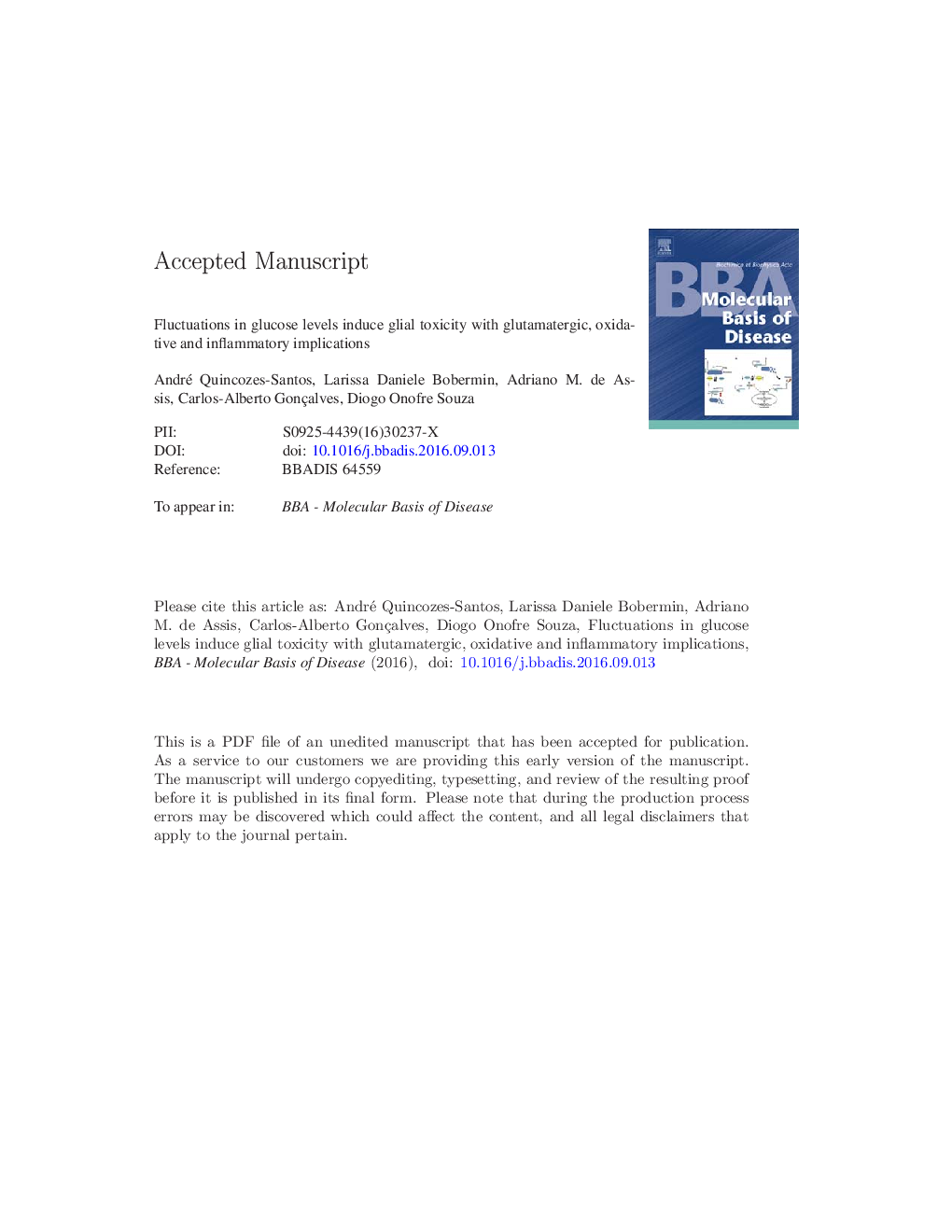| Article ID | Journal | Published Year | Pages | File Type |
|---|---|---|---|---|
| 5501158 | Biochimica et Biophysica Acta (BBA) - Molecular Basis of Disease | 2017 | 63 Pages |
Abstract
Astrocytes are dynamic cells that maintain brain homeostasis by regulating neurotransmitter systems, antioxidant defenses, inflammatory responses and energy metabolism. Astroglial cells are also primarily responsible for the uptake and metabolism of glucose in the brain. Diabetes mellitus (DM) is a pathological condition characterized by hyperglycemia and is associated with several changes in the central nervous system (CNS), including alterations in glial function. Classically, excessive glucose concentrations are used to induce experimental models of astrocyte dysfunction; however, hypoglycemic episodes may also cause several brain injuries. The main focus of the present study was to evaluate how fluctuations in glucose levels induce cytotoxicity. The culture medium of astroglial cells was replaced twice as follows: (1) from 6 mM (control) to 12 mM (high glucose), and (2) from 12 mM to 0 mM (glucose deprivation). Cell viability, mitochondrial function, oxidative/nitrosative stress, glutamate metabolism, inflammatory responses, nuclear factor κB (NFκB) transcriptional activity and p38 mitogen-activated protein kinase (p38 MAPK) levels were assessed. Our in vitro experimental model showed that up and down fluctuations in glucose levels decreased cell proliferation, induced mitochondrial dysfunction, increased oxidative/nitrosative stress with consequent cellular biomolecular damage, impaired glutamate metabolism and increased pro-inflammatory cytokine release. Additionally, activation of the NFκB and p38 signaling pathways were putative mechanisms of the effects of glucose fluctuations on astroglial cells. In summary, for the first time, we show that changes in glucose concentrations, from high-glucose levels to glucose deprivation, exacerbate glial injury.
Keywords
GLUTΔΨmIL-10IL-1βEAAC1GSHNADPHIL-6NFκBNOxp38 MAPKROS/RNSOxidative/nitrosative stressNeuroinflammationNADPH oxidaseInterleukin 10interleukin 1βinterleukin 6tumor necrosis factor αexcitatory amino acid carrier 1glucose transportersCNSDiabetes mellitusC6 cellscentral nervous systemTNF-αnuclear factor κBglucose deprivationNitric oxidenicotinamide adenine dinucleotide phosphate reducedMitochondrial membrane potentialp38 mitogen-activated protein kinaseGlutathioneGlutamine synthetaseReactive oxygen/nitrogen species
Related Topics
Life Sciences
Biochemistry, Genetics and Molecular Biology
Ageing
Authors
André Quincozes-Santos, Larissa Daniele Bobermin, Adriano M. de Assis, Carlos-Alberto Gonçalves, Diogo Onofre Souza,
